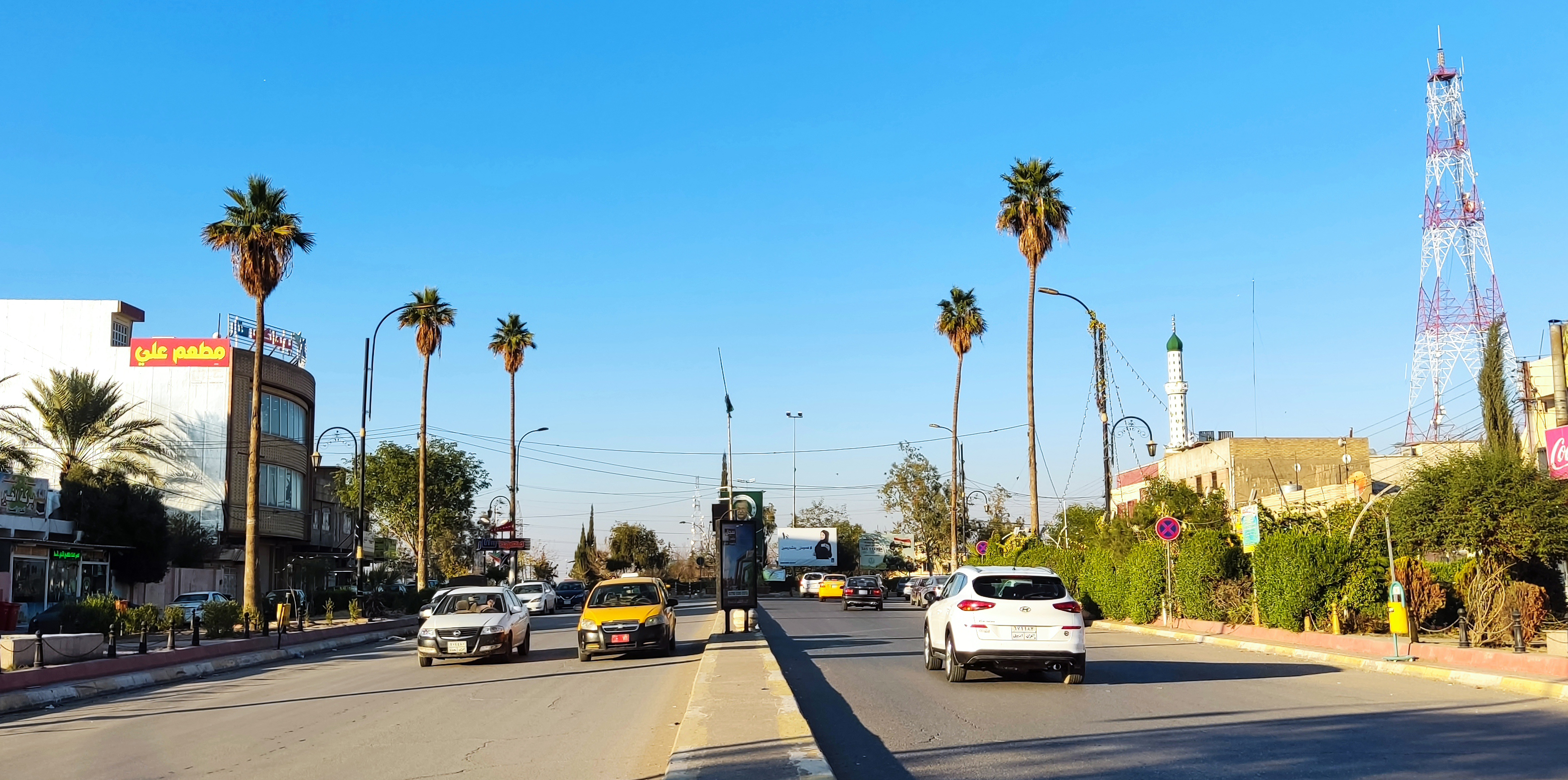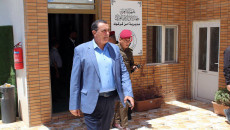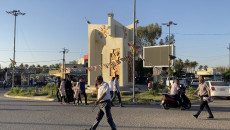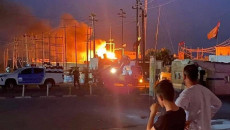The residents of Kirkuk have been complaining for a week about the deteriorating electricity situation and the decrease in the number of hours of supplying national electricity which led to concerns of an increase in the fees of power supplied by private generators.
According to the follow-ups of (KirkukNow) correspondent in different neighborhoods and regions of Kirkuk province, citizens are supplied with national electricity daily for six to seven hours a day from the beginning of August, while it used to reach 10 hours and sometimes more.
“National power outages have increased significantly, on some days the number of hours of supplying national electricity does not reach seven hours, meaning that they provide us with an hour or two and then cut off for about seven hours, so that private generators sometimes cannot fill the shortage,” says Pakshan Irfan, a resident of a residential complex in Kirkuk.
This comes at a time when temperatures in Kirkuk hits 50 Celsius degrees, while large part of the citizens rely on air conditioning devices that consume power. Once the national power, which is limitless for residential units and businesses, is out which is, they use air coolers which require less electricity since the private generators charge ten times double of national power pushing people to buy few amperes.
Kirkuk was supplied with 850 megawatts of electricity, dropped to 550
An informed source in the Kirkuk Electricity Distribution Department told (KirkukNow) on the condition of anonymity, until a few days ago, Kirkuk was supplied with 850 megawatts of electricity, but it has dropped to about 550 megawatts.
“The crisis is due to rising temperatures and increased consumption of power.”
The source explained that "another reason is the increase in the share of the provinces of Najaf and Karbala of electricity due to the advent of the month of Muharram and the religious ceremonies held there."
Kirkuk governorate needs more than a thousand megawatts daily to secure the electricity needs of its residents. The governorate administration relies on 733 private generators to make up for the shortfall in hours of supplying national electricity.
Following gulf war in 1991, the Iraqi state infrastructure was sharply hit by the economic embargo on Saddam Hussein regime due to damage of many transmission lines and substations leaving the basic services provided by the state inadequate.
Few years later, the local authorities gave permission to installation of private diesel generators in the residential neighborhoods to provide power and fill in the national power outage as it could provide only half of the demand on national network of state-subsidized electricity.
The cost of the power provided by private generators is couple of times double of power provided by the state thus people are obliged to consume as less as possible during national power outage in order to pay less for private generators.
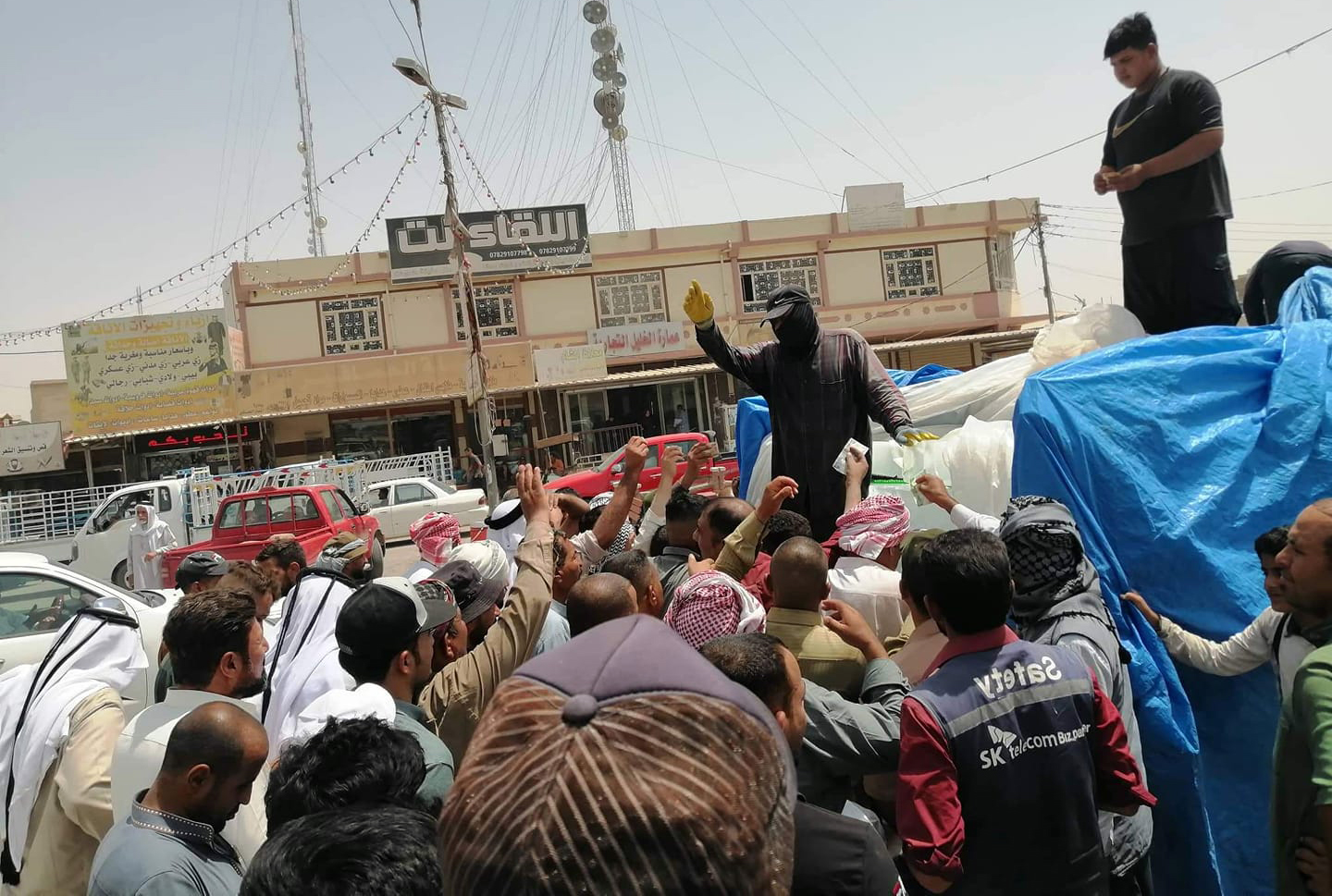
The situation is not different in the districts and sub-districts of Kirkuk. In the district of Hawija, the decrease in the number of hours of national electricity supply led to an increase in the prices of ice blocks.
"The price of ice block in Hawija increased from 2,000 (Iraqi) dinars (IQD) to 4,000 ($2.5) due to the electricity crisis, which led to an increase in the price of the amp of private generators," said Burhan Adnan al-Jumaili, a resident of the Hawija district center, to (KirkukNow).
The price of a one ampere of power by private diesel generators for the month of July ranged between 5,500 to 16,000 IQD.
Haval Hussein, the owner of a private generator in the Al-Wasiti neighborhood of Kirkuk, said, "Our generators work day and night. We provide citizens with 15 or 16 hours a day, although we do not enough (subsidized) diesel."
Owners of private generators organized several protest gatherings saying the portions they are supplied with from public petrol stations is sufficient to operate their generators for 110 hours per month, while providing citizens with electricity for over 200 hours.
We are about to forget that there is such a thing called national electricity
“The national electricity was cut off from seven in the evening until two in the middle of the night, and then it was cut off again after only half an hour and did not come until the morning,” Ahmed Bawaei, a resident of the Panja Ali neighborhood said.
He slammed at the government officials for not fulfilling the promises they make every year.
"Citizens are also to blame. There are houses for some officials in our area in which there are six air conditioners, all of which operate while the national electricity is on."
Most citizens rely on fans and air coolers during national power outages, as they consume less electricity, ranging between one or two amperes, compared to modern air conditioners that consume more than eight amperes.
Iraq's electricity ministry has cited a number of causes for the prolonged and widespread cuts including sabotage attacks, shortages of fuel for power stations, and lack of budget for periodical maintenance.
Haider Abdullah, a resident of Wahid Huzairan neighborhood, said, "We are about to forget that there is such a thing called national electricity, because when I come back in the evening, the private generator is operating, and the situation remains as it is until I leave the house in the morning."
He pointed out that he sometimes had to put their infant child inside the car and turn on the car's air conditioner for him during the power outage of the private generators.

